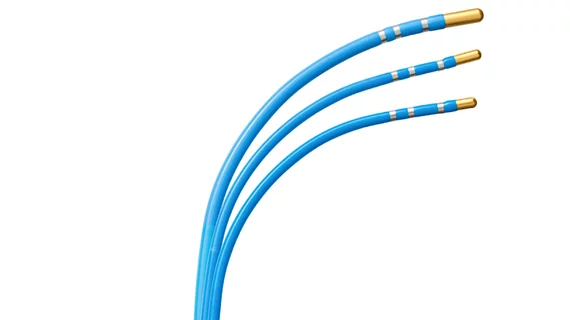FDA expands two Medtronic cardiac cryoablation catheters for AVNRT
Medtronic has gained an expanded FDA approval for its Freezor and Freezor Xtra cardiac cryoablation focal catheters; the devices are now approved for the treatment of pediatric atrioventricular nodal reentrant tachycardia (AVNRT).
AVNRT, a potentially life-threatening condition that results in a rapid heart rhythm, is seen in approximately 89,000 patients per year. A significant number of those patients are children.
The Freezor and Freezor Xtra catheters are single-use cryoablation devices that freeze the patient’s cardiac tissue to block “unnecessary” electric signals in the heart. According to Medtronic, these are the first ablation catheters to gain approval for treating pediatric AVNRT.
“We're proud of our work with the Pediatric & Congenital Electrophysiology Society and FDA in this first-of-its-kind, multi-stakeholder initiative to address a critical patient population,” Rebecca Seidel, president of Medtronic’s cardiac ablation solutions business, said in a prepared statement. “The shared commitment to collaborate and grow this therapy's unique position to treat AVNRT patients demonstrates our confidence in the proven safety and efficacy of our cryoablation technology.”
“There are very few devices approved to treat medically complex pediatric cardiology patients today,” added Bryan C. Cannon, MD, a pediatric cardiologist and past president of PACES. “With an FDA indication expansion, the Freezor and Freezor Xtra cardiac cryoablation catheters allow even the youngest of cardiology patients access to a safe, life-enhancing technology that will help advance cardiac care for AVNRT.”
Medtronic pointed to positive results from several clinical studies designed to explore the safety and effectiveness of these devices, including the ICY-AVNRT study.
Related EP Lab Content:
Predicting AFib recurrence after catheter ablation remains a challenge
Medtronic gains expanded FDA approval for Arctic Front cryoablation catheters
FDA clears new cardiac mapping solution for treating arrhythmias
Catheter ablation boosts AFib outcomes, new meta-analysis confirms

